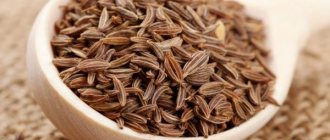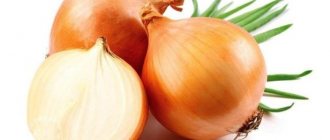Cough › Treatment of cough › Folk remedies › Treatment of cough during pregnancy with folk remedies
It is clear that during pregnancy, there is a potential danger of taking medications, including cough medications. Folk remedies in this situation are a worthy, and sometimes the only, alternative.
From the first days of pregnancy, the fetus receives all the necessary substances from the mother’s blood. Along with beneficial substances, harmful ones are also transmitted to him, including medications that the mother takes. Some medicines are potentially harmful to the fetus. They slow down its development and even cause deformities, acting destructively on tissue during the period of organ formation (teratogenic effect).
Features of cough treatment in pregnant women
Treatment of cough during pregnancy, like any other disease, should be carried out by a antenatal clinic therapist together with an obstetrician-gynecologist. This is due to the fact that these doctors are the most knowledgeable about potentially dangerous periods of fetal development and which drugs are contraindicated in pregnant women.
The above does not mean that a pregnant woman should not be treated. An infection that is not stopped in time can have a detrimental effect on the fetus due to a direct teratogenic effect (like the rubella virus). And also harm indirectly - due to intoxication, elevated temperature and general disruption of lifestyle.
In addition, cough itself is very harmful to a pregnant woman for the following reasons:
- cough tremors are accompanied by an increase in intra-abdominal pressure, which leads to disruption of the blood supply to the uterus and fetal hypoxia;
- due to increased uterine tone when coughing, there is a danger of placental abruption, bleeding and premature birth (or miscarriage if the term is short).
Cough in pregnant women must be treated, but the choice of treatment method must be approached very responsibly. Treatment should begin with eliminating the cause.
Treatment of colds during pregnancy
The specificity of treating colds and coughs during pregnancy is that at different stages of pregnancy the doctor prescribes different medications. In particular, it is better not to prescribe serious drugs in the first trimester, but these medications can be used in the third trimester.
In the 1st trimester of pregnancy for the treatment of dry cough it is allowed to take:
- Stodal
- Bronchicum
- Sinekod
In the 2nd and 3rd trimesters, the doctor may prescribe:
- Coldrex Knight
- Stoptussin syrup
- Falimint
- Libexin
To treat a wet cough throughout pregnancy, with the permission of your doctor, you can take the following medications:
- Bromhexine
- Bronchiprest
- Mukaltin
- Tussin
- Gerbion
- Chest collection
- Linkas
- Doctor Mom
- overslept
It is strictly forbidden to take the following medications for any period of time:
- Glycodin
- Tussin plus
- Codelac
- Flupex
- Bronholitin
- Terpincord
- Ascoril
- ACC
- Pertusin
- Travisil
- Joset
What are the causes of cough in pregnant women?
A cough does not occur on its own; it is almost always a symptom of some disease.
The cause of cough may be:
- Acute respiratory disease of a viral or bacterial nature.
Depending on the level at which the inflammatory process has developed, acute respiratory infections occur in the following clinical forms:
- rhinitis (runny nose);
- pharyngitis (inflammation of the pharynx) – the cough with this form of acute respiratory infection is usually dry;
- laryngitis (vocal cords are involved) – cough also occurs, often accompanied by hoarseness;
- tracheitis (inflammation of the trachea) - a cough with a rough timbre, when sputum appears, it becomes wet;
- bronchitis (the bronchi are affected, respectively) - manifested by shortness of breath, spasmodic cough, sputum is difficult to clear.
- mixed forms: nasopharyngitis, laryngotracheitis and the like, they are more common, since the infection tends to spread and not be limited to one section.
- Chronic diseases in the acute stage - chronic bronchitis, chronic pharyngitis, laryngitis.
- Pneumonia and pleurisy are acute, very serious diseases; their treatment in pregnant women should be carried out in a hospital.
- Bronchial asthma - usually a woman is aware of her disease. If it proceeds in a controlled manner, then pregnancy is possible. But a pregnant woman should work closely with her doctor to tailor treatment based on potential harm to the fetus.
- Tuberculosis, lung tumors, and other serious diseases. With them, cough is one of the most harmless symptoms. Their treatment is complex and lengthy, and the drugs are toxic. It is necessary to remember the existence of these diseases in order to suspect them in time.
When a cough appears, a pregnant woman must consult a doctor so that he can establish a diagnosis, assess the severity of the condition, the threat to the child due to the disease and possible treatment, and prescribe the necessary medications.
The most common cause of cough is, of course, acute respiratory infections. Every woman expecting a child should make every effort to avoid contracting a viral infection, especially during the cold season.
Safe folk remedies
safe herbal cough drops at home . To do this, you need to take 1/4 cup of dry collection of chamomile, sage, and linden blossom. Pour a glass of boiling water over them. Cover the dish with a lid and heat for half an hour in a water bath. Strain. Add 300 g of sugar. Boil the mixture while stirring until it becomes caramel. Place a teaspoon onto oiled parchment. Sprinkle with powdered sugar. Dissolve one lozenge every 3-4 hours.
For inhalation you can use the following mixture:
- two tsp. eucalyptus leaves,
- validol 1 tablet,
- a tablespoon of chopped pine or spruce needles,
- 1 tsp. finely chopped garlic.
Pour all the ingredients into boiling water, let it cool slightly and breathe in the steam for 10 minutes.
Many folk remedies are not only healthy, but also tasty. A decoction of figs in milk helps a lot . To do this, you need to take 3-4 dried figs. Pour in 600 ml of milk. Boil. Switch heat to medium. Cook, stirring, until the figs are soft and the milk is brown. Drink 100 ml warm three times a day.
What are the folk remedies for the prevention of acute respiratory infections and cough?
It must be remembered that a cold is a viral infection transmitted by airborne droplets, so during the cold season, a pregnant woman must take the following measures:
- If possible, avoid going to crowded places to avoid meeting someone who is mildly ill and spreading the infection.
- If you need to go to a public place (clinic, store), wear a mask - gauze or disposable. It should be remembered that the mask needs to be changed every 2 hours (throw away or wash in hot water and iron).
- When going outside, dress warmly, but not too hot, so as not to sweat and freeze.
- When a sick person appears in the family, the pregnant woman should be protected as much as possible from infection:
- the sick and pregnant woman should be in different rooms;
- rooms need to be ventilated regularly;
- It is advisable for the patient to allocate dishes that are washed and processed separately;
- Measures should be taken to disinfect indoor air.
To disinfect a room, it is very good to use folk remedies; they are also used in treatment.
This method is based on the use of natural phytoncides; they are safe for pregnant women:
- Saucers are placed in the room on which finely chopped garlic cloves or onion rings are laid out. These plants are rich in phytoncides, which, when released into the air, kill microbes. They are changed as they dry. For the same purpose, you can use radishes cut into plastic.
- Using aroma lamps with essential oils of fir, spruce, eucalyptus. These plants also have a strong bactericidal effect. It is advisable to avoid a very strong odor.
- For the same purpose, several fresh branches of coniferous trees are placed in vases in the apartment.
- Another, exotic, but very effective method is a “necklace” of garlic cloves or onion rings. It creates around itself and the one who wears it, a space with almost sterile air.
When infection of a pregnant woman cannot be avoided, treatment should be started immediately. These can be means of both official and traditional medicine. Treatment during pregnancy with folk remedies is not always as harmless as it seems.
Herbs for coughs during pregnancy
Herbs are usually prescribed in the form of tea, infusion or decoction. The following herbs are safe and effective:
- Linden;
- rose hip;
- raspberry greens;
- chamomile;
- verbena;
- echinacea;
- ginger root.
In pharmacies you can also find infusions, for example, infusions based on herbs that are safe to take.
Plantain for cough during pregnancy
Plantain, a remedy for cough during pregnancy, is used carefully, since it can slightly increase the tone of the uterus. By itself, it is highly effective due to the flavonoids and vitamins it contains, and has a wound-healing effect.
The plant is used in the form of an infusion, which relieves pain in the throat and reduces the rate of development of the inflammatory process. 4 table. l. Brew 250 ml of boiling water and leave for 2 hours. Take 1 table. l. up to 5 times a day.
Linden for cough during pregnancy
Traditional medicine has long recognized linden as an effective remedy for treating a number of viral and chronic diseases. Together with honey, the plant increases its antiseptic qualities, which helps cure ARVI. Its flowers contain:
- flavonoids;
- vitamin C;
- essential oils;
- antioxidants;
- carotene.
These substances increase immunity and relieve inflammation.
Thanks to its antipyretic and diaphoretic effects, the plant helps to expel pathogenic microflora and strengthens the immune system. Linden is also often used for coughs during pregnancy, as it has an expectorant effect.
The recipe for taking linden is quite simple; you can use it in the form of:
- Tea. Mix 2 table. l. linden with a glass of water, leave for 15 minutes. It is advisable to drink no more than 4 cups.
- Infusion. Mix 3 table. l. linden with 400 ml of water, leave for 2 hours, strain. Use when rinsing, preheat.
- Decoction. 1 table. l. pour a glass of water and cook for 10 minutes. You are allowed to drink no more than half a liter of decoction per day.
It is allowed to make compresses with linden blossom.
Ginger for cough during pregnancy
Ginger has been shown to be highly effective in relieving coughs. The recipe during pregnancy is mainly focused on teas, since during cooking the beneficial substances in the plant are broken down.
The maximum benefit when taking ginger can be achieved only by using fresh root, since it contains a large amount of vitamins, microelements and other compounds. Dried and crushed ginger can be used as a seasoning, but in small quantities, since spicy food increases the tone of the uterus and increases nervousness. It is not recommended to consume pickled ginger.
Fresh ginger can be brewed in boiling water, adjusting the volume of raw materials to taste, adding lemon and honey. It is advisable to drink no more than 1 liter per 24 hours. For ARVI, you can also take capsules with ginger, which are sold in pharmacies.
Badger fat for cough for pregnant women. Is it worth eating?
Badger fat for coughs during pregnancy has been used since ancient times, so its effect has been tested for generations. The product contains unsaturated fatty acids, vitamins A and E, as well as more than 20 useful compounds. That is why fat is not only safe, but also promotes health due to:
- improving the regeneration of damaged tissues;
- unloading of the cardiovascular system;
- improving immunity;
- normalization of the functioning of the gastrointestinal tract.
Badger fat can quickly cure both the common cold and tracheitis, bronchitis and other diseases.
For treatment, it is better to take real badger fat, which is usually sold in glass containers.
You need to eat it 3 times. per day in about 60 minutes. before eating in this volume:
- 1 dessert. l., if weight is less than 60 kg;
- 1 table. l., if the weight is around 60-100 kg;
- 1.5-2 table. l., if the weight is more than 100 kg.
You can eat honey, but it is advisable not to drink it. Continue the course until symptoms disappear.
If you cannot take fat internally, you can use rubbing, massaging the lung area in front and on the back, neck. Fat has a warming effect, which makes coughing easier.
What folk remedies should not be taken by pregnant women?
It’s worth making a reservation right away: even a cough compress during pregnancy must be approved by a doctor in advance, not to mention any serious traditional medicine. To understand what is not allowed, follow these recommendations:
- It is forbidden to drink vodka and alcohol tinctures.
- Drinking too hot can damage the mucous membrane.
- Honey and citrus fruits are allowed in minimal quantities, since the products are highly allergenic.
- It is not recommended to drink herbal teas more than 5 times a day.
- You should not drink infusions of nettle, comfrey, hemlock and other plants, which are poisonous in any way, increase muscle tone and can cause bleeding.
- Do not overuse compresses.
- Compresses are prohibited from being applied to the abdomen, including its upper part.
It is worth adhering to moderation in treatment and starting any new product with small doses to reduce the risk of allergies.
Figs with milk are an effective folk remedy for coughs that can be used during pregnancy. How to prepare this delicious medicine - watch the next video.
What are the dangers of treating pregnant women with folk remedies for cough?
When folk remedies for cough are mentioned, the use of herbal infusions and decoctions immediately comes to mind. One gets the impression that since it is grass, it is natural and safe, but this is a misconception. Some of the most potent drugs were originally obtained from plant materials - opiates, cardiac glycosides, alkaloids. Most herbs do not belong to the category of folk remedies; herbs are means of official medicine.
When deciding whether or not to use certain folk remedies (infusions or decoctions of herbs) for a cough during pregnancy, you must first be guided by the official instructions included with the package of the herbal preparation. It’s probably not even worth mentioning that the packaging should be purchased at a pharmacy - it’s obvious.
The official instructions included with the package are a document drawn up based on research.
Only official instructions, and not a description of the drug on the Internet or in reviews on forums, can serve as the basis for deciding whether to use the drug or not.
Treatment during pregnancy with folk remedies can harm the fetus. Examples include plants such as coltsfoot and licorice. These plants are traditionally used for coughs; some Internet resources also recommend them during pregnancy. But they are strictly contraindicated for a pregnant woman.
Coltsfoot contains alkaloids and can be very harmful; even cases of death of newborns have been described, and licorice, due to its hormone-like effect, disrupts the development of the endocrine and genital organs in the child.
Sometimes the risk differs depending on the trimester. Specialists have this information. Therefore, a pregnant woman should be treated under the supervision of her doctor to resolve all controversial issues.
Methods for treating cough during pregnancy with folk remedies
And yet, what to do if you have a severe cough? Treatment with folk remedies during pregnancy is based on infusions and decoctions of herbs and inhalations. Which method to choose is up to you: proceed from the form that is convenient for you and your liking for the recipe. As reviews show, inhalations are more effective and help you recover faster, but it is best to combine different recipes together with each other.
Infusions and decoctions
During an acute respiratory viral infection, you need to drink a lot of both plain water and infusions, fruit drinks, and teas that are beneficial to the body. The main thing is that the drink is hypoallergenic, so any herbs must be selected carefully, starting with small doses.
It is important to understand that the reaction to treatment of cough with folk remedies during pregnancy will be individual for an individual, that is, any of the remedies may be ineffective for you due to the characteristics of the body. This is a normal reaction, you should try further and look for something effective.
A few examples of decoctions and infusions useful for pregnant women with ARVI:
- Figs 4 dried figs pour 3 cups. milk and simmer until the mixture begins to brown. Drink 0.5 cups while hot. 3 times a day.
- Onion. Chop half a kilogram of onions and mix with 2 tablespoons. l. honey and 400 grams of granulated sugar, add a liter of water and simmer over low heat for 3 hours. Let the mixture cool, strain it, pour it into a container and hide it in the refrigerator. Drink 1 table. l. up to 6 times, preheat.
- Bran. Brew half a kilogram of bran with a liter of water, let it cool, separate the mass from the liquid and throw it away, drink it hot throughout the day.
- Raisin. 50 grams of raisins pour 1 cup. boiling water, cover, leave for half an hour and strain. Add 3 tablespoons to the resulting infusion. onions and stir. Drink this at night, in one dose. You can drink every 2 days.
- Birch buds. Ceiling birch buds, table 3. l. mix with 100 gr. butter, melt for 60 minutes. Strain the resulting mixture; the cake can be used for a compress. Add 200 grams of honey to the composition. Drink 4 r. per day.
You can also be treated with decoctions of medicinal herbs in their pure form.
Inhalations
Inhalations are considered the most effective method, as they help calm coughs and quickly relieve spasms, dilate blood vessels, and promote active blood flow, which stimulates the immune system. For procedures, it is better to use inhalers and nebulizers, but if they are not available, you can take a teapot or a saucepan, but you will only have to do inhalations.
Solutions can be prepared according to the following recipes:
- 20 grams of sage herb per 250 ml mountains. water.
- Mix 10 grams of eucalyptus leaves with 2 chopped cloves of garlic and dilute with 250 ml of boiling water.
- 50 grams of soda per liter of boiled water.
- 10 grams of honey per 250 ml of warm water.
It is important to remember that inhalation at high temperatures is prohibited, as this will significantly worsen the condition. You need to breathe over the inhaler for about 5-8 minutes, then take a short break. There should be no more than 6 such visits during one procedure. The temperature of the solution itself must be maintained at 40 degrees. It is better if at least half an hour passes between meals and inhalation.
Rinse
Often women do not like to treat coughs during pregnancy with folk remedies for rinsing, since this can increase toxicosis and even cause a gag reflex. However, these procedures are the best option in cases where medications cannot be taken, but treatment needs to be done quickly.
As rinsing agents you can use:
- saline;
- soda and salt (half a teaspoon each), diluted with a glass of water;
- decoctions of any herbs, for example. linden, clover;
- apple cider vinegar (1 teaspoon), diluted with a glass of water.
Gargling procedures are especially effective for dry coughs, as they relieve pain in the throat area and relieve irritation of the mucous membrane. It is better to gargle after eating and during exacerbation of the condition, no more than 8 r. per day.
General recommendations for the treatment of pregnant women
It should be remembered that official cough preparations may contain several, including herbal, components. Each of these components is potentially harmful. It is imperative to familiarize yourself with the composition.
If it is indicated that taking the drug is possible if the expected benefit to the mother outweighs the risk to the fetus, then there is no accumulated data on use during pregnancy, and it is better to refrain from taking it.
When prescribing medications to a pregnant woman, including cough medications, the following rules should be followed:
- strictly take contraindications into account;
- avoid taking any medications in the first trimester, including dietary supplements and herbs;
- take minimal (to obtain effect) doses in a minimal course;
- do not use combinations and mixtures of drugs (herbs);
- carefully monitor your health;
- try to use “local” treatment - inhalation, rubbing, rinsing, irrigation.
Compliance with these rules makes treatment during pregnancy with folk remedies relatively safe.
Prohibited means
It is contraindicated to treat cough in a pregnant woman in the early stages (first 3 months) using the following means:
St. John's wort decoction
- Herbs, teas and other herbs for oral administration containing: St. John's wort, hyssop, anise, sweet clover, oregano - increase the tone of the uterus, which can provoke spontaneous abortion and premature birth.
- Coltsfoot, calendula, chamomile - for the entire period of pregnancy. Application is possible only locally (gargle).
- Preparations, tinctures containing alcohol.
During pregnancy, a woman is prohibited from taking narcotic pharmaceuticals (morphine derivatives): codeine and its analogues for cough therapy. These substances have an expectorant effect and help reduce coughing, but they cannot be used by many people. The reason is that a semi-synthetic opioid can cause euphoria in large doses. After taking a medication based on 3-methylmorphine (codeine), it is metabolized (changed) using the CYP2D6 isoenzyme, then by demethylation it turns into morphine. To reduce pharmacokinetic data, impurities are added to reduce toxicity.
Codelac-broncho
To treat a cough, a pregnant woman should not take the following medications for the entire 9 months: Codelac-phyto and Codelac-broncho, Altemix, Tos-May, Bronholitin, Grippex, Zedex, Tedein, Bronhoxol, Rinzakoff, Kodarin, Codepsin, Tercodin.
Aloe can be used as a cough remedy during pregnancy, but carefully, only after consultation with a specialist. The effect of the plant on the body is the same as that of St. John's wort and hyssop. In addition, aloe increases blood pressure, which is extremely undesirable. If your doctor allows it, you can use the following recipe: dissolve honey with aloe juice in a 1:1 ratio and take 1 tsp. several times a day.
Best Recipes
Before deciding what pregnant women can take for a cough, you need to establish the requirements for each procedure offered by traditional medicine. First of all, you need to remember that the treatment regimens for dry and wet cough are different. When choosing a remedy, you need to take into account the duration of pregnancy, the woman’s medical history and the condition of the fetus.
First of all, a pregnant woman needs to relieve the symptom. As stated, the spasms themselves can harm the baby. Acute cough responds well to herbal treatment. The best effect is possible if the herbs act directly on the throat. For this, various traditional methods of treatment are used. The most reliable cough treatment regimen is combined, when different procedures are performed alternately. This technique will help quickly eliminate the cause of the disease, which is very important during the 3rd trimester.
Rinsing should only be done after meals. They will help calm irritation and relieve pain. The optimal number of procedures per day is 6-8 times. Infusions should be dosed correctly and not overused, even if they feel tasty and safe. If you are predisposed to allergies, it is better to check the list of safe ingredients with your therapist. Even ordinary honey can cause a sharp allergic reaction in a pregnant woman, who has always eaten it with pleasure.
Pregnant women should not do inhalations at very high temperatures, but optimal ones will help quickly remove mucus and eliminate nasal congestion. It is recommended to buy a special inhaler, although you can also perform the procedure using a kettle or saucepan. The whole procedure takes 10 minutes, no more. At this time you need to do 3-6 approaches. After inhalation, it is not recommended to talk or eat for another half hour.
Not only herbs, vegetables, dairy products and honey help in this fight, but also aromatic oils. A few drops are enough to get the desired effect. To alleviate the painful condition, you can place an aroma lamp in the bedroom. Even a scented handkerchief is enough. Eucalyptus, sage and tea tree are recommended for these purposes.
Decoctions and tinctures
Regular milk helps with cough in pregnant women. A budget option, but a good expectorant: boil a tablespoon of sage herb in 0.5 liters of milk. You need to infuse the product for 4 hours, wrapped in a warm cloth. You should drink the decoction once, before going to bed. Dosage – one tablespoon. Sage is very effective in eliminating wet coughs.
A more expensive recipe includes figs: boil the milk, but add 4-5 figs. The finished liquid will turn brown. You can dilute the taste with honey (two tablespoons is enough). The decoction should be drunk 100 ml three times a day.
For a good night's sleep, you can prepare a soothing drink with milk. Honey, warm milk, butter and a grain of soda are enough to get a good night's sleep.
Perhaps the most popular remedy for coughs is honey. Pregnant women are recommended to use a mixture of honey (2 tbsp) and 500 g of finely grated onion. The drug is taken three times a day, between meals. Nut lovers can make a remedy with honey and hazelnuts. You will need 3 tbsp. l. chopped nuts and 3 tbsp. l. honey Take a teaspoon three times a day. A strong folk medicine is made from horseradish. You can cure a cough with 2 liters. l. horseradish juice and 4 tbsp. l. honey The product is indicated for pregnant women once a day, half a teaspoon diluted with water, after 18:00. They also make an infusion of radish: 200 g of root and 100 g of honey, three times a day in the amount of 2 tbsp. l.
Expectorant decoctions and infusions for pregnant women:
- Rosehip, chamomile, plantain, primrose in equal parts pour 400 g of boiling water, cook in a water bath for 20-30 minutes, leave for 30 without a lid, strain. Drink 80 g several times.
- Thyme, flax, anise in equal parts pour 200 g of boiled water (cold), leave for 2 hours, boil slowly, judge, strain. Drink 80 g three times.
- Marshmallow root (1 tbsp) pour 250 g of cold water, leave for 8-10 hours, strain. It is advisable to leave the drink overnight. Take 80 g three times.
- Brew 2 tsp. clover per 2 liters of water. Leave for 15 minutes. Drink 125 g. You can add honey.
- Leaves and flowers coltsfoot (3 tablespoons) pour 500 g of boiling water. Leave for 30 minutes, wrap in a warm cloth, strain. Drink 80 g. An effective remedy for bronchitis and pneumonia.











